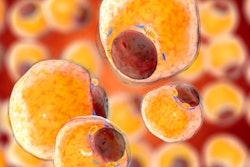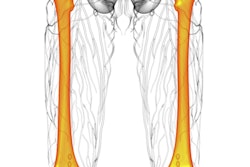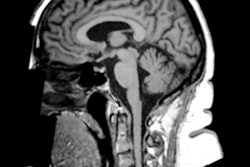
Bariatric arterial embolization (BAE) with MRI surveillance leads to weight loss without affecting muscle and does not require surgery, according to research presented March 7 at the Society of Interventional Radiology's annual meeting in Phoenix, AZ.
Researchers led by Dr. Daniel Giraldo Herrera from Johns Hopkins Medicine in Baltimore presented results from the pilot phase of the BEATLES trial (Bariatric Embolization of ArTeries with imaging visible EmbolicS). The trial is evaluating the use of calibrated 100 µm to 200 µm radiopaque microspheres for weight loss.
The researchers evaluated data from seven patients, each with class II-III obesity as defined by the Centers for Disease Control and Prevention (CDC) who underwent BAE. The group tracked weight loss effects with whole-body MRI anthropometry.
At zero, three, and six months, average body weight among the patient cohort decreased, from 125.9 kg to 113.5 kg to 110.7 kg (p = 0.012). Weight-to-thigh muscle volume ratios for these follow-up time periods also decreased, at 10.3 kg/L, 10 kg/L, and 9.2 kg/L (p = 0.001).
"BAE using 100-200µm microspheres is associated with significant post-procedural muscle-sparing weight loss via subcutaneous and intramuscular fat reduction," the group concluded.




















